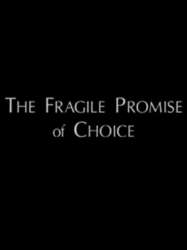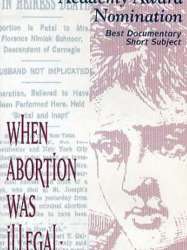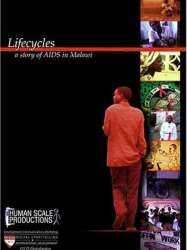Seeds of Hope: HIV/AIDS in Ethiopia is a american film of genre Documentary directed by Dorothy Fadiman
Seeds of Hope: HIV/AIDS in Ethiopia (2004)

If you like this film, let us know!
Seeds of Hope: HIV/AIDS in Ethiopia is a set of five documentary films about individuals and organizations working to break the silence, lift the stigma and prevent the spread of HIV/AIDS in Ethiopia. The films focus on activists, family members, humanitarian groups, and health care professionals, all acting as advocates for awareness. The films were directed by filmmaker, Dorothy Fadiman. The films are in Amharic with English subtitles.
The five films in the series are: "From Risk to Action: Women & HIV/AIDS in Ethiopia (2006)," "Breaking the Silence: Lifting the Stigma of HIV/AIDS (2006),"
"Stepping Forward: Men Teaching and Learning about HIV/AIDS (2006)," "HIV/AIDS Awareness: Approaches to Prevention (2006)," and "Whose Children Are They Now?: AIDS Orphans in Ethiopia (2006)."
Comments
Leave comment :
Suggestions of similar film to Seeds of Hope: HIV/AIDS in Ethiopia
There are 11 films with the same director, 8969 with the same cinematographic genres, 4793 films with the same themes (including 4 films with the same 4 themes than Seeds of Hope: HIV/AIDS in Ethiopia), to have finally 70 suggestions of similar films.If you liked Seeds of Hope: HIV/AIDS in Ethiopia, you will probably like those similar films :
 , 57minutes
, 57minutesDirected by Dorothy Fadiman
Origin USA
Genres Documentary
Themes Pregnancy films, Films about sexuality, Documentaire sur une personnalité, Documentary films about health care
Actors Dorothy Fadiman
Rating72%





 , 57minutes
, 57minutesDirected by Dorothy Fadiman
Origin USA
Genres Documentary
Themes Pregnancy films, Films about sexuality, Documentary films about historical events, Documentaire sur une personnalité, Documentary films about politics, Documentary films about health care, Political films
Rating66%





 , 28minutes
, 28minutesDirected by Dorothy Fadiman
Origin USA
Genres Documentary
Themes Pregnancy films, Films about sexuality, Documentary films about historical events, Documentaire sur une personnalité, Documentary films about health care
Rating67%





 , 22minutes
, 22minutesDirected by Dorothy Fadiman
Origin USA
Themes Films about drugs, Documentary films about law, Documentary films about health care
 , 27minutes
, 27minutesDirected by Dorothy Fadiman
Origin USA
Themes Pregnancy films, Films about sexuality, Documentaire sur une personnalité, Documentary films about health care
 , 57minutes
, 57minutesDirected by Dorothy Fadiman
Origin USA
Themes Documentaire sur une personnalité, Documentary films about health care, Films about disabilities

Origin Canada
Genres Documentary
Themes Films set in Africa, Medical-themed films, Documentary films about health care, HIV/AIDS in film
Lifecycles: a Story of AIDS in Malawi is an hour long documentary film shot over an eight-month period on location in Malawi, Africa. Malawi won't perish, but must grow with the virus as catalyst. Lifecycles provides a detailed glimpse into the lives of the Malawian people living with HIV and AIDS. Directors Doug Karr and Sierra Bellows travel across Malawi bringing us a glimpse of a complex situation that encompasses sadness and hope, defeat and renewal.

We Are Together (2006)
, 1h23Genres Documentary
Themes Films set in Africa, Films about children, Medical-themed films, Documentaire sur une personnalité, Documentary films about health care, HIV/AIDS in film
Actors Lorraine Bracco, Alicia Keys, Paul Simon, Kanye West
Rating76%





 , 42minutes
, 42minutesDirected by Dorothy Fadiman
Origin USA
Genres Documentary
Themes Documentary films about law, Documentary films about historical events, Documentaire sur une personnalité, Documentary films about politics, Political films

O meu marido esta a negar (2007)
, 21minutesGenres Documentary
Themes Films set in Africa, Medical-themed films, Documentary films about health care, HIV/AIDS in film
Hermínia est une mère séropositive. Elle s’en est rendu compte lors de ses consultations à la maternité. Gabriel, son mari, est au courant de sa maladie et l’accepte. En revanche il refuse de faire les tests. Dans ce cas le traitement d’Hermínia ne lui servirait à rien. Elle est convaincue que si elle l’emmène voir une pièce de théâtre sur ce thème, il changera d’attitude. O meu marido está a negar décrit le spectacle interactif du Teatro do Oprimido et son rôle pour les malades du sida, en se proposant d'encourager les changements de comportement et la prise de conscience de leur public par rapport à cette maladie.
 Connection
Connection